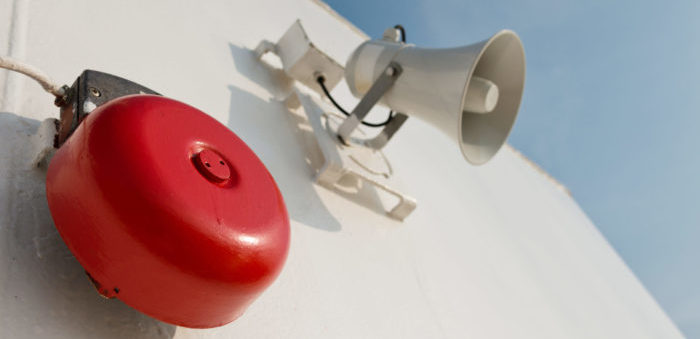The Liberian Registry describes an incident where a smoke alarm went off in the engine room of a vessel while on a trade route between Asia and North America. The investigation showed that a leaking steam near the smoke detector had caused the alarm to go off.
A smoke alarm kept going off in the engine room of a vessel while on a trade route between Asia and North America.
After conducting investigation, a crew member saw that the alarm was triggered by a leaking steam line near to the smoke detector. The vessel’s chief engineer taped over the smoke detector, and the the alarm stopped going off.
Although the chief engineer told the master that the situation had been resolved, he didn’t tell him how he resolved it. After arriving in the US, port state control officers discovered the taped-up detector and, it was found that the chief engineer had not followed proper company, class, or Liberian Administration procedures. As a result, the vessel was detained.
More investigation by the Liberian Administration caused the chief engineer to lose his endorsement for putting the vessel and its crew in danger. In the meantime, class and the Liberian Administration wrote a requirement for the next drydock period to move the location of the smoke detector two feet to avoid more false alarms.































































Good day, a very excellent information and guidelines for those working in the maritime sector for the safety of lives, properties and ships while in operation in port or at sea.
The leak should have been rectified rather than putting a tape on sensor.
I would have thought that fixing the steam leak would be the obvious solution ????
An ideal case which shows that even the best training, induction and safety management policies will fail. If human element is not totally eliminated. Granted, that this might not be the rule. But,the exceptions spoil the name for many !!